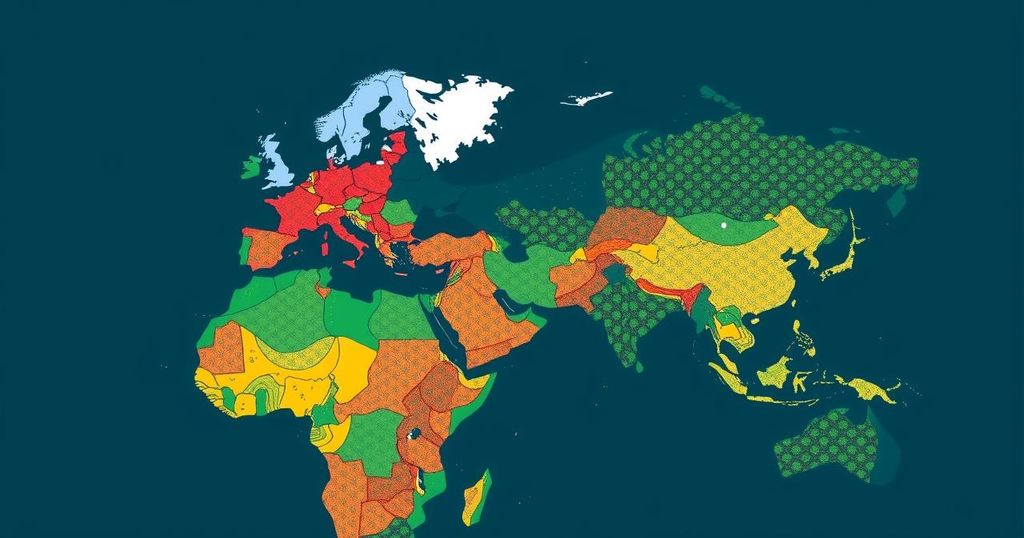COP29 Seals Climate Finance Deal Amid Criticism from Vulnerable Nations
The world approved a contentious climate finance agreement at COP29, committing rich nations to $300 billion annually by 2035 to aid developing countries. This figure falls short of the $500 billion sought by vulnerable nations, leading to widespread criticism that the deal does not adequately address the climate crisis. Despite the frustrations expressed, leaders characterized the agreement as a significant but flawed step forward in global climate action.
On November 24, global leaders finalized a contentious climate finance agreement, committing historically wealthy nations to provide $300 billion annually to assist developing countries in mitigating the impacts of climate change. This figure falls significantly below the $500 billion initially sought by these nations. The two-week negotiations in Azerbaijan were fraught with challenges, with developing nations expressing frustration over what they described as an inadequate and insufficient response to the escalating climate crisis.
The agreement, which emerged after intense negotiation sessions, reflects a modest increase from the current annual commitment of $100 billion, yet it is markedly lower than the $250 billion proposed earlier in the discussions. Many developing nations vehemently denounced the deal, calling it a disgrace for not addressing the urgent needs of countries already grappling with extreme environmental stressors. “It is a paltry sum,” remarked India’s delegate Chandni Raina, underscoring the sentiment shared by various representatives from the developing world.
Formerly rich countries like the United States and the European Union face growing pressure to improve their financial contributions to combat climate change, particularly in light of recent catastrophic disasters linked to climate effects. Some criticisms were directed toward the host country Azerbaijan, with calls for a more serious commitment to climate finance. Despite these critiques, U.N. climate chief Simon Stiell acknowledged the imperfections of the agreement yet maintained that no party left with all demands met, emphasizing the need for realistic negotiation outcomes.
United Nations Secretary-General António Guterres expressed disappointment at the lack of ambition in the deal but framed it as a foundational step for future endeavors. Meanwhile, U.S. President Joe Biden hailed the agreement as a significant milestone, albeit one that has drawn skepticism from many nations involved. The agreement does outline a broader ambition of $1.3 trillion in total climate finance, predominantly aiming to draw from private sources, further highlighting the divide in expectations between developing and developed countries.
The COP29 talks, held in Azerbaijan, focused on climate finance during a period of increasing global environmental disasters and heightened debates over the responsibilities of wealthier nations towards poorer, developing countries that are disproportionately affected by climate change. Historically, wealthy nations have been called upon to provide financial support for mitigation and adaptation efforts in vulnerable nations. Over the years, climate financing negotiations have been marked by contentious discussions, as developing countries demand greater financial commitments to effectively address climate-related challenges. The backdrop of these negotiations is characterized by both political and environmental urgency, as recent climate events have prompted a reevaluation of committed financial support and the actual requirements to mitigate climate impacts worldwide.
The COP29 climate finance agreement showcases the complexities and challenges of global climate negotiations, particularly regarding the disparity between the needs of vulnerable nations and the commitments made by wealthier countries. While the $300 billion annual contribution represents a step forward, it has been widely criticized as insufficient to meet the pressing challenges of climate change. This agreement, viewed by some as a historical breakthrough, reveals the ongoing struggle for equitable climate finance—a struggle that is far from resolved as the impacts of climate change continue to escalate across the globe.
Original Source: www.lemonde.fr




Post Comment